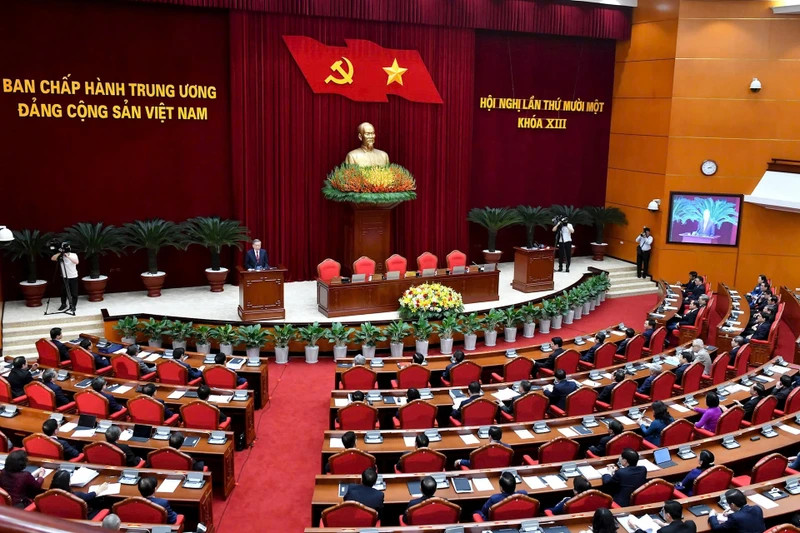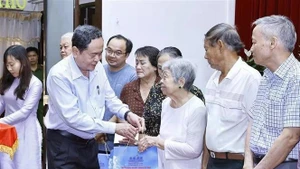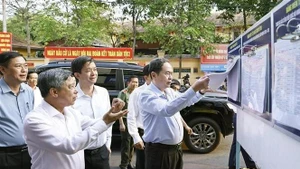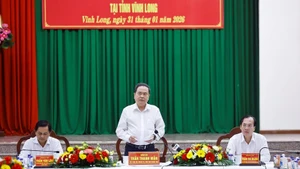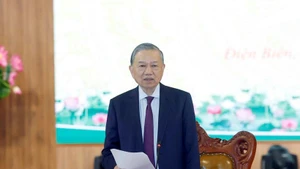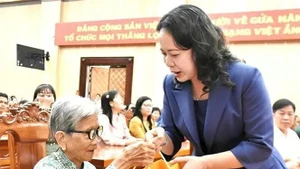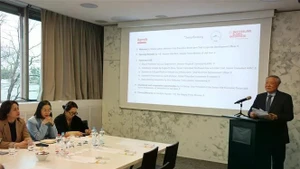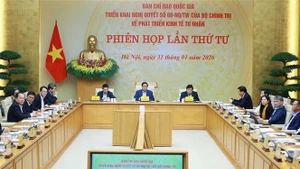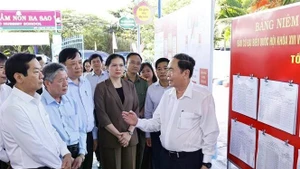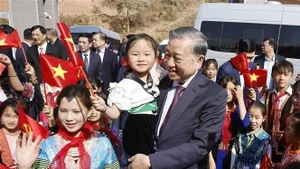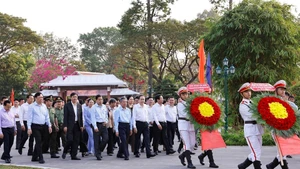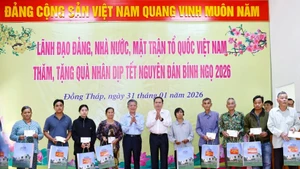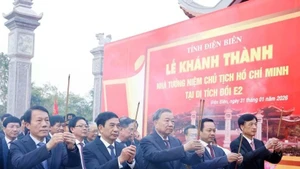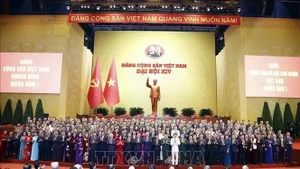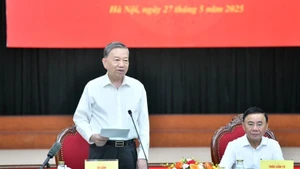The Party Central Committee reached a high consensus on organising a two-tier local government structure, comprising the provincial level (provinces and centrally-run cities) and the commune level (communes, wards, and special zones under provincial or city jurisdiction). After the mergers, there will be 34 provincial-level units (including 28 provinces and six centrally-run cities), with a nationwide reduction of 60–70% in commune-level administrative units.
With a forward-thinking mindset and a revolutionary spirit for national development and the people’s well-being, the 11th session of the 13th Party Central Committee is regarded as a historic meeting, addressing landmark decisions in the country’s new revolutionary phase.
Over three days, the Party Central Committee discussed and gave opinions on 15 major topics of broad scope, many of which were crucial to national planning and public welfare. Particularly, the issue of reorganising the political system’s organisational structure and the establishment of a two-tier local government received significant attention from officials, Party members, and the public.
In the past four months, the Party’s strategic resolution to streamline the organisational structure for efficient operation has been rapidly and effectively implemented. Under the resolute leadership of the Party Central Committee, the Politburo, and the Secretariat, led by Party General Secretary To Lam, the entire political system from central to grassroots levels has acted with urgency and clarity, aiming at fast, stable, and sustainable national development and improving the people’s quality of life.
The Government outlines a clear timeline and specific tasks at each stage, ensuring practical alignment and achievement of the objectives and solutions set out in the conclusions of the Politburo and the Secretariat. Responsibilities and coordination mechanisms among ministries, central agencies, provincial and municipal Party committees, People’s Councils, and People’s Committees are clearly defined for effective implementation.
To ensure the new two-tier local government model operates smoothly without legal gaps after the restructuring, an extensive workload must be completed by June 30, 2025. This includes finalising policies, laws, and guidance documents by central ministries and agencies to provide a foundation for reorganising administrative units and establishing the new local government system.
At the provincial level, based on the Politburo and Secretariat’s conclusions, National Assembly resolutions, and government guidance, authorities are accelerating the process of restructuring administrative units. This includes public communication efforts, conducting voter consultations, proposing names for new commune-level units, selecting headquarters locations, and adjusting local government functions and powers according to their authority under the new structure.
Ensuring transparency and public participation, provincial People’s Committees are developing proposals and organising consultations in affected commune-level units, determining appropriate methods, timelines, and procedures based on local realities to meet established schedules.
In some localities, assigned lead agencies, coordinating with other merging provinces or cities, have begun initial working sessions to draft and file merger proposals for provincial- and commune-level units. Voter consultations are being held with household representatives in the areas undergoing mergers, ensuring that the required documents are submitted on schedule.
A key requirement for ideological work is achieving high consensus and unity in awareness and action among officials, public servants, and the broader population. To ensure effective implementation, close coordination is needed between provincial-level Party committees and local governments, along with media agencies, to proactively provide information on achieved results. All efforts are directed toward the ultimate goal of rapid, stable, and sustainable national development and better care for the people’s lives.
